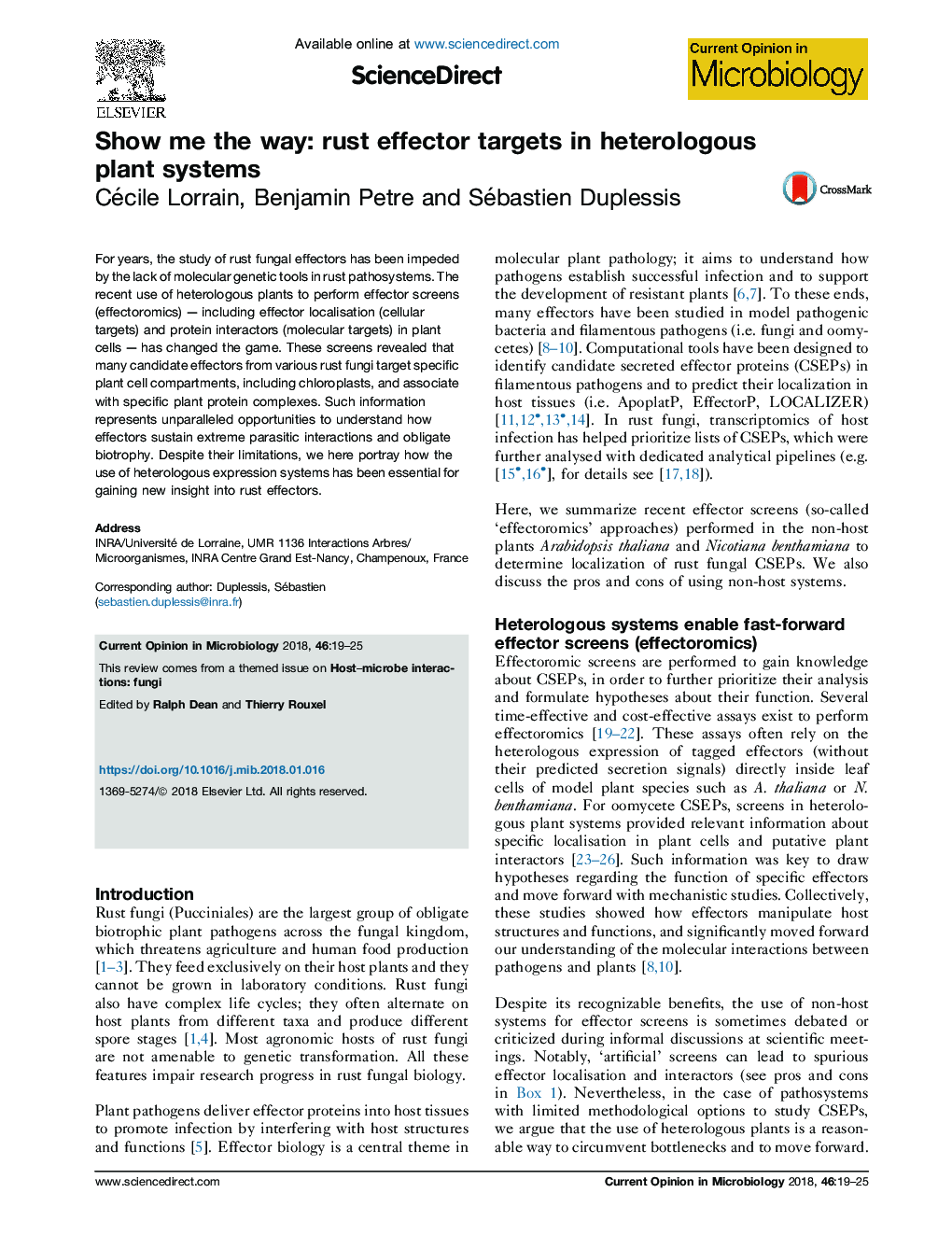| Article ID | Journal | Published Year | Pages | File Type |
|---|---|---|---|---|
| 8745012 | Current Opinion in Microbiology | 2018 | 7 Pages |
Abstract
For years, the study of rust fungal effectors has been impeded by the lack of molecular genetic tools in rust pathosystems. The recent use of heterologous plants to perform effector screens (effectoromics) - including effector localisation (cellular targets) and protein interactors (molecular targets) in plant cells - has changed the game. These screens revealed that many candidate effectors from various rust fungi target specific plant cell compartments, including chloroplasts, and associate with specific plant protein complexes. Such information represents unparalleled opportunities to understand how effectors sustain extreme parasitic interactions and obligate biotrophy. Despite their limitations, we here portray how the use of heterologous expression systems has been essential for gaining new insight into rust effectors.
Related Topics
Life Sciences
Immunology and Microbiology
Microbiology
Authors
Cécile Lorrain, Benjamin Petre, Sébastien Duplessis,
